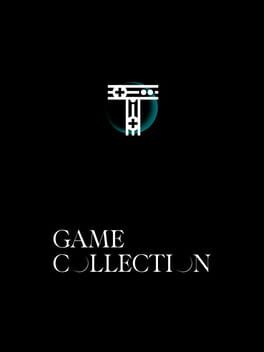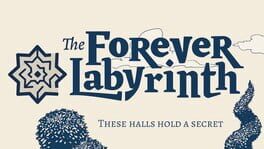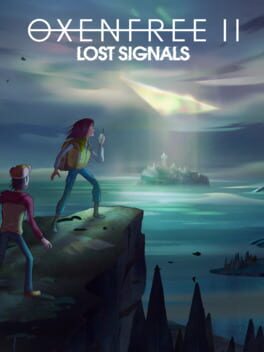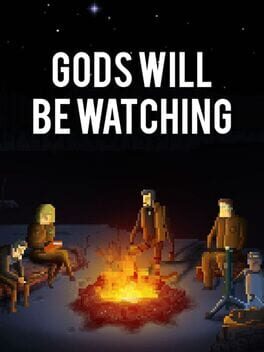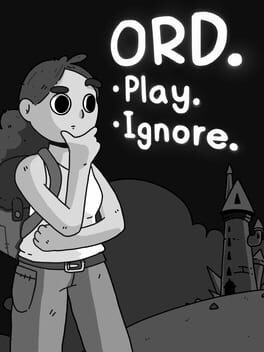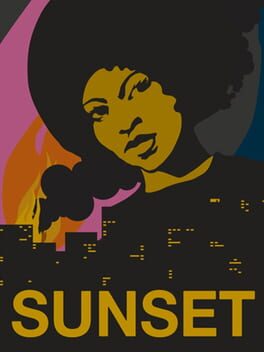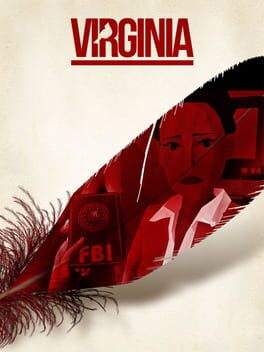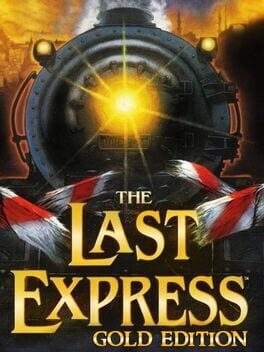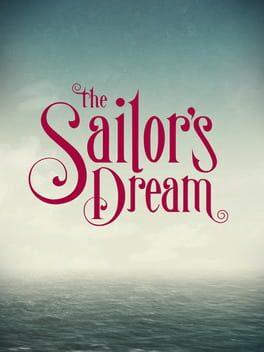MJRParsons
Wade by Optillusion: A game about navigating a barrier. Your character moves from being fully submerged in water to being entirely surrounded by air. (Perhaps it’s the opposite?) In the process, they circumvent obstacles to resolve the transition from one binary state to another, perhaps the transition from life to death. A modest little rumination with a single mechanically annoying moment that’s especially unwelcome given its brevity.
We Are Poems by Fern Goldfarb-Ramallo: An exploration game through abstract space. It ostensibly explores queerness and pleasure, although I can’t say that really registered for me. It’s openly reminiscent of Tale of Tales’ contribution to the previous volume of the Triennale Game Collection, but more elliptical.
Nonno’s Legend by Nina Freeman/Star Maid Games: A game about exerting the power of imagination on the world. You’re a young girl whose grandfather has just given you a magic globe where the land can be rearranged as you see fit. There’s no goal, just an invitation to indulge the childlike fantasy of influencing empirical reality–the shapes of the continents themselves– with your mind. Like the developer’s earlier Cibele, it’s drawn from personal experience and feels true to life.
Mine by Akwasi Bediako Afrane: A game about traversing an environment and learning its dark secrets. The whole game is a corridor, reminiscent in that way only of Half-Life, and it takes place under the ground, reminiscent in that way only of Colossal Cave Adventure. The setting is a mine shaft, though what is being extracted here and for what purpose is not immediately obvious. Very mysterious and compelling.
Contact by Llaura McGee/Dreamfeel: An interactive story about something weird that happened once. A narrator tells the story of a youthful encounter with aliens, but really it’s about queer community. It’s all couched in the aesthetics of zines and early internet culture: points of intersection for marginalized communities and outsider creatives. Very lovely.
We Are Poems by Fern Goldfarb-Ramallo: An exploration game through abstract space. It ostensibly explores queerness and pleasure, although I can’t say that really registered for me. It’s openly reminiscent of Tale of Tales’ contribution to the previous volume of the Triennale Game Collection, but more elliptical.
Nonno’s Legend by Nina Freeman/Star Maid Games: A game about exerting the power of imagination on the world. You’re a young girl whose grandfather has just given you a magic globe where the land can be rearranged as you see fit. There’s no goal, just an invitation to indulge the childlike fantasy of influencing empirical reality–the shapes of the continents themselves– with your mind. Like the developer’s earlier Cibele, it’s drawn from personal experience and feels true to life.
Mine by Akwasi Bediako Afrane: A game about traversing an environment and learning its dark secrets. The whole game is a corridor, reminiscent in that way only of Half-Life, and it takes place under the ground, reminiscent in that way only of Colossal Cave Adventure. The setting is a mine shaft, though what is being extracted here and for what purpose is not immediately obvious. Very mysterious and compelling.
Contact by Llaura McGee/Dreamfeel: An interactive story about something weird that happened once. A narrator tells the story of a youthful encounter with aliens, but really it’s about queer community. It’s all couched in the aesthetics of zines and early internet culture: points of intersection for marginalized communities and outsider creatives. Very lovely.
I feel like this runs counter to the emerging consensus, but I enjoyed Oxenfree II significantly more than its predecessor. Your mileage will vary depending on how deeply the first game resonated with you (it left me a little bit cold). But I found the sequel to be a subtler and more mature story, set in a more beautiful environment, with more compelling secrets to find.
Alas, the biggest problem from the first game returns here, which is that the characters still stammer and ‘um’ their way through every damn line. The script is full of ellipses, filler words and other sources of artificial hesitancy that I imagine were intended to make the dialogue seem more naturalistic, but they don't. Obviously I can’t get into the writers’ heads, but it feels like somebody tried to write the voice performances into the script. I always prefer when writers focus on clarity and concision, and trust the actors to lift the language off the page. A few stretches of Oxenfree II are beautifully written, but this mannerism is so pervasive that it makes the characters hard to listen to. I see that other reviewers have been praising this game’s dialogue. To each their own. I tended to enjoy what the characters said, but not how they said it.
Nevertheless, if you can see (and listen) past these flaws, you’ll find a game that exceeds its predecessor as an explorable environment (at times it feels like a third-person Firewatch), that uses its horror gimmick more judiciously, and tells a lovely, melancholy story about two people who are desperately trying not to waste their precious lives. You need to have played the first game to understand it, and I’m not sure I’d recommend playing that game just for the purpose of getting to this somewhat better sequel. But if you’ve played Oxenfree already, I think this is well worth your time.
Alas, the biggest problem from the first game returns here, which is that the characters still stammer and ‘um’ their way through every damn line. The script is full of ellipses, filler words and other sources of artificial hesitancy that I imagine were intended to make the dialogue seem more naturalistic, but they don't. Obviously I can’t get into the writers’ heads, but it feels like somebody tried to write the voice performances into the script. I always prefer when writers focus on clarity and concision, and trust the actors to lift the language off the page. A few stretches of Oxenfree II are beautifully written, but this mannerism is so pervasive that it makes the characters hard to listen to. I see that other reviewers have been praising this game’s dialogue. To each their own. I tended to enjoy what the characters said, but not how they said it.
Nevertheless, if you can see (and listen) past these flaws, you’ll find a game that exceeds its predecessor as an explorable environment (at times it feels like a third-person Firewatch), that uses its horror gimmick more judiciously, and tells a lovely, melancholy story about two people who are desperately trying not to waste their precious lives. You need to have played the first game to understand it, and I’m not sure I’d recommend playing that game just for the purpose of getting to this somewhat better sequel. But if you’ve played Oxenfree already, I think this is well worth your time.
This is less a review than a public service announcement: I just finished the free DLC that was added to this several years ago now, and I found it significantly better than any individual chapter of the base game. It isn't a radical departure. If you found the base game's mechanics tedious, the same will be true of the DLC. Likewise if you found the base game's philosophy tiresome - this will not change your mind. But it features the best writing in the game and its story forces the characters to talk to each other in a way that characterizes them more strongly than before.
So, if you're at least mixed-positive on this and you haven't gone back to check out the DLC, it's worthwhile. (Maybe remind yourself of the base game's story first - it'll be a tough sit otherwise.)
So, if you're at least mixed-positive on this and you haven't gone back to check out the DLC, it's worthwhile. (Maybe remind yourself of the base game's story first - it'll be a tough sit otherwise.)
2019
This is an ingenious little idea. Usually the gameplay loop with interactive fiction is something like read passage of text > make choice > read another passage of text > make another choice etc. In this case, the decision to use single words instead of full passages of text enables a far higher rate of "choices per second" than any other interactive fiction I've encountered. It feels like the sort of thing its creators might have considered an experiment, but it's so good that it's accidentally a legit game.
The five included stories are good, but I feel like if more writers got on board it could be a really promising format. Here's hoping for updates. Or sequels.
The five included stories are good, but I feel like if more writers got on board it could be a really promising format. Here's hoping for updates. Or sequels.
2015
This review contains spoilers
This certainly shouldn't have caused its studio's demise, but having played it twice I find it really frustrating. The central gameplay premise is promising: there's a revolution happening, but you're a housekeeper. You watch history unfold through the windows of your wealthy employer's magnificent vintage apartment. As you accomplish your mundane tasks, you hear your character's nuanced thoughts on the world around her. Maybe you decide not to accomplish those tasks after all and just sit around on your employer's plush furniture. Listen to his records. You know, role-playing.
The trouble is, the game insists on tying its protagonist in with the revolution story that's going on outside. Her brother is a revolutionary and she has the opportunity to use her connection to her employer to help him. This feels like a lack of commitment to me: a sop to notions of "player agency," when what really matters here is the protagonist's inner life and not her influence over the world around her.
Worse, the game invites us to make a series of binary choices that inform a romance subplot that makes absolutely no sense for the character. Again, a sop to the notion of "agency." I would have far preferred to be given choices for how to spend my time in this apartment that have no ultimate consequence for the story but that reflect the protagonist's interiority in some way.
Sunset is a complicated thing that I wish I liked better. It's well worth playing, because there's nothing like a noble failure.
The trouble is, the game insists on tying its protagonist in with the revolution story that's going on outside. Her brother is a revolutionary and she has the opportunity to use her connection to her employer to help him. This feels like a lack of commitment to me: a sop to notions of "player agency," when what really matters here is the protagonist's inner life and not her influence over the world around her.
Worse, the game invites us to make a series of binary choices that inform a romance subplot that makes absolutely no sense for the character. Again, a sop to the notion of "agency." I would have far preferred to be given choices for how to spend my time in this apartment that have no ultimate consequence for the story but that reflect the protagonist's interiority in some way.
Sunset is a complicated thing that I wish I liked better. It's well worth playing, because there's nothing like a noble failure.
2016
Before Orson Welles made Citizen Kane, he wrote a script for a film based on Joseph Conrad's Heart of Darkness. The film was greenlit by RKO, casting was in progress, and it seemed set to become Welles' debut film. The project fell through for a bunch of reasons, but I suspect a lot of it had to do with Welles' insistence that much of the movie should be shot in a first-person perspective, with the camera taking on the role of the narrator in Conrad's novel.
This is a crazy idea, and one that Welles never revisited, even in his more experimental later years. Placing the audience in the perspective of a character when they don't have any control of that character's motion is disorienting, and not immersive at all. Filmmakers since Welles have tried it, none to any great acclaim.
If games like Virginia were considered as attempts to make good on Orson Welles' thwarted ambition, rather than first-person shooters with the regrettable absence of a gun, we'd all be having a better time.
This is a crazy idea, and one that Welles never revisited, even in his more experimental later years. Placing the audience in the perspective of a character when they don't have any control of that character's motion is disorienting, and not immersive at all. Filmmakers since Welles have tried it, none to any great acclaim.
If games like Virginia were considered as attempts to make good on Orson Welles' thwarted ambition, rather than first-person shooters with the regrettable absence of a gun, we'd all be having a better time.
It's absolutely wild how modern this feels in every way except for the UI. Wandering around the train and stumbling into ongoing conversations in real time feels like magic even today. The writing is worthy of the golden-age Hollywood movies it clearly takes inspiration from, and even the acting is good. But the classic point-and-click interface makes this incredibly frustrating to navigate. This kind of interface doesn't bother me in other classic games like Riven or Grim Fandango, but train cars look similar enough to each other that it's super easy to get turned around in The Last Express.
This Gold Edition presumably offers some quality of life improvements from the original, but this is really screaming for a full-on remake. Take the same story and puzzles and transplant them directly into a modern 3D environment with mo-cap replacing the rotoscoping and you'd have a masterpiece.
Granted, this will not happen. So you'll just have to play this: one of the two or three best classic point-and-clicks, ahead of its time, a victim of its own momentum.
This Gold Edition presumably offers some quality of life improvements from the original, but this is really screaming for a full-on remake. Take the same story and puzzles and transplant them directly into a modern 3D environment with mo-cap replacing the rotoscoping and you'd have a masterpiece.
Granted, this will not happen. So you'll just have to play this: one of the two or three best classic point-and-clicks, ahead of its time, a victim of its own momentum.
2014
You know that moment at the start of Sayonara Wild Hearts where the opening cutscene transitions into the menu screen and the title song kicks in? That moment rules. This is a game made entirely of that moment.
Simogo are the absolute masters of what some people call "presentation," but I like to call it "staging": the combination of elements that makes a moment dramatically successful. Simogo pays more attention than anybody to details like the way text moves across the screen, the way a colour scheme can set the mood, the way a touchscreen can give the illusion of physical tension. During their run of games from Year Walk to DEVICE 6 to The Sailor's Dream, their work became more and more stylish as it became less and less concerned with puzzles and traditional gameplay objectives. It's no wonder that they ran in the opposite direction with Sayonara: with The Sailor's Dream they'd reached the apex of something. They put all their efforts into making a game that looks, sounds and feels beautiful at every moment and indeed it does. Every design element from the explorable environments themselves down to the loading screens and individual UI elements are beautiful, tactile and intuitive. Assessing it demands an entirely different frame of reference from most games, and indeed even from Simogo's other work.
The story is simple enough but elaborately told. The same events are heard Rashomon-style from the perspective of three different characters through three different media: text, speech and music. (Incidentally, although this game doesn't have the best music of all time, it certainly has the best songs.) The gut punch arrives once you've completed all three parts of the puzzle.
The Sailor's Dream is Simogo's masterpiece and one of the best mobile games ever made. I joined this website because it needed a friend.
Simogo are the absolute masters of what some people call "presentation," but I like to call it "staging": the combination of elements that makes a moment dramatically successful. Simogo pays more attention than anybody to details like the way text moves across the screen, the way a colour scheme can set the mood, the way a touchscreen can give the illusion of physical tension. During their run of games from Year Walk to DEVICE 6 to The Sailor's Dream, their work became more and more stylish as it became less and less concerned with puzzles and traditional gameplay objectives. It's no wonder that they ran in the opposite direction with Sayonara: with The Sailor's Dream they'd reached the apex of something. They put all their efforts into making a game that looks, sounds and feels beautiful at every moment and indeed it does. Every design element from the explorable environments themselves down to the loading screens and individual UI elements are beautiful, tactile and intuitive. Assessing it demands an entirely different frame of reference from most games, and indeed even from Simogo's other work.
The story is simple enough but elaborately told. The same events are heard Rashomon-style from the perspective of three different characters through three different media: text, speech and music. (Incidentally, although this game doesn't have the best music of all time, it certainly has the best songs.) The gut punch arrives once you've completed all three parts of the puzzle.
The Sailor's Dream is Simogo's masterpiece and one of the best mobile games ever made. I joined this website because it needed a friend.
